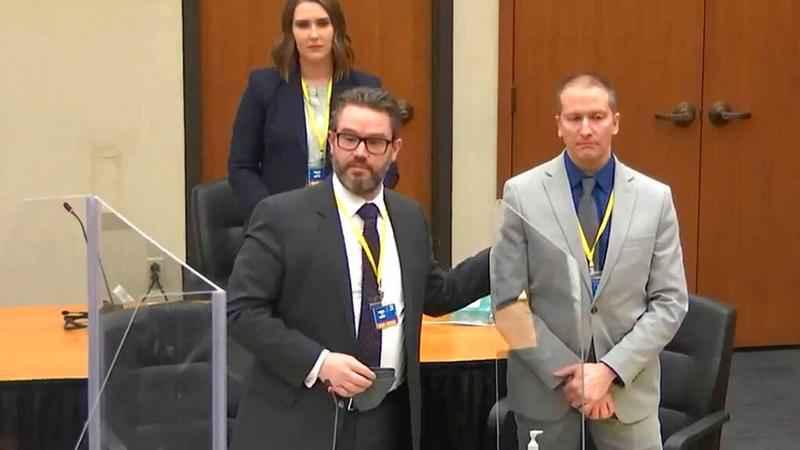Single attorney leading Chauvin’s defense differs from previous police cases
[anvplayer video=”5022040″ station=”998122″]
For more than a month, attorney Eric Nelson has sat to the right of Derek Chauvin in the Hennepin County courtroom where the former officer’s murder trial is being held.
Nelson has single-handedly questioned every juror, cross-examined every witness and objected to questions from prosecutors as the lone attorney representing the ex-Minneapolis police officer.
"He’s carrying the ball completely," said Joseph Daly, emeritus professor at Mitchell Hamline School of Law and a former professor of Nelson. "It’s hard to carry this kind of burden, where you’re the only trial lawyer in the courtroom doing everything."
In several recent high-profile, officer-involved murder cases in Minnesota, teams of attorneys have come to the defense of police officers and worked on their case through trial.

In this screen grab from video, defense attorney Eric Nelson, left, defendant and former Minneapolis police officer Derek Chauvin, right, and Nelson's assistant Amy Voss, back, introduce themselves to jurors as Hennepin County Judge Peter Cahill presides over jury selection in the trial of Chauvin Wednesday, March 17, 2021 at the Hennepin County Courthouse in Minneapolis, Minn. Chauvin is charged in the May 25, 2020 death of George Floyd.[Court TV]
Former St. Anthony police officer Jeronimo Yanez, who shot and killed Philando Castile, three attorneys handled the trial: Paul Engh, Earl Gray and Thomas Kelly.
In 2019, former MPD officer Mohamed Noor was represented by Tom Plunkett and Peter Wold, who were both visible every day during the trial and who took turns cross-examining witnesses.
The Chauvin case is a striking departure from that norm.
Minnesota law enforcement officers are given the option to pay into a Legal Defense Fund run through the Minnesota Police and Peace Officers Association. The fund retains and pays for 12 criminal defense attorneys, who represent police officers charged with crimes related to their work.
MPPOA said it assigns the attorneys on a rotating basis. The organization would not answer specific questions about Chauvin’s case.
Full State vs. Chauvin trial coverage
Mary Moriarty, the former chief public defender in Hennepin County, said it is common for public defenders to try cases on their own, but says in the Chauvin trial, it could be a strategy the defense is intentionally using.
"I think the perception that Eric Nelson is trying to create with the jury is one of the underdog," she said. "It may well be a strategy in this case … that you are there by yourself against the vast forces of the government."
Daly, who has been following the trial closely, said he thinks Nelson has been doing his best, given the circumstances.
"I think he’s very calm, cool and collected," Daly said. "He pays close attention. He looks right at the person that he’s asking his questions of. He’s done all the work necessary to put this case together."